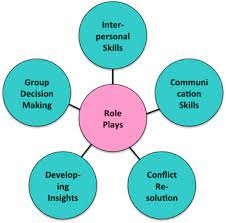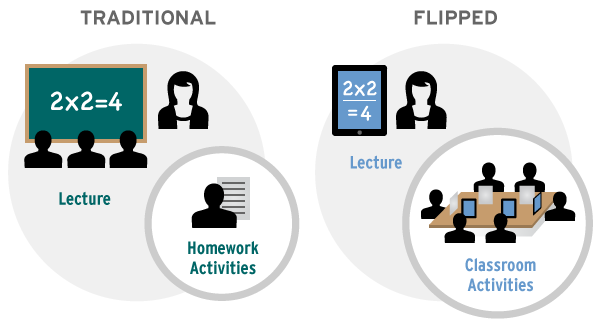BRAINSTORMING
"Brainstorming is the process of free thinking and generating ideas without being bound by restraints such as "is this a good or bad idea?". Brainstorming is one of the best-known techniques available for creative problem-solving.

MIND MAP
A mind map is a diagram used to visually organize information. A mind map is hierarchical and shows relationships among pieces of the whole. Mind maps can also be drawn by hand, either as "notes" during a lecture, meeting or planning session, for example, or as higher quality pictures when more time is available.

VIDEO LECTURE
A video lesson or lecture is a video which presents educational material for a topic which is to be learned. The format may vary. It might be a video of a teacher speaking to the camera, photographs and text about the topic or some mixture of these.

ROLE PLAY
Role play is a technique that allows students to explore realistic situations by interacting with other people in a managed way in order to develop experience and trial different strategies in a supported environment. Depending on the intention of the activity, participants might be playing a role similar to their own or could play the opposite part of the conversation or interaction.

Benefits of Role Playing
FISHBOWL
The Fishbowl is a peer-learning strategy in which some students are in an outer circle and one or more are in the center. In all Fishbowl activities, students in both the inner and outer circles have roles to fulfill. Students in the center model a particular practice or strategy.

JIGSAW
Jigsaw is a cooperative learning strategy that enables each student of a "home" group to specialize in one aspect of a topic.

GROUP DISCUSSION
Group Discussion or GD is a type of discussion that involves people sharing ideas or activities. People in the group discussion are connected with one basic idea. Based on that idea, everyone in the group represents his/her perspective.

PEER-TO-PEER LEARNING
Peer-to-peer learning is all about students teaching other students. Peer-to-peer learning in the workplace is similar-instead of students, though, it's employees teaching one another.

FLIPPED CLASSROOM
A flipped classroom is a type of blended learning where students are introduced to content at home and practice working through it at school. This is the reverse of the more common practice of introducing new content at school, then assigning homework and projects to completed by the students independently at home.
